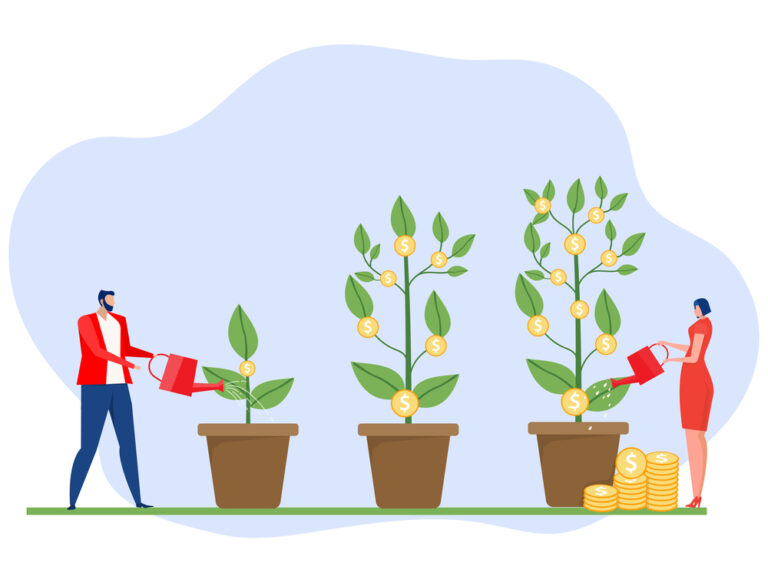
Insights into the Global P2P Marketplace Trends
Ever-changing – a single word that best describes our world and the people that populate it. As years, centuries and millennia pass, even mountains once thought indestructible and solid weather away. But change is good. It is always necessary for progress. And so, the financial world has experienced a tremendous transformation in recent years, and much of it can be attributed to the emergence of peer-to-peer (P2P) marketplaces. P2P marketplaces offer the world of commerce something that it has lacked for many years – the opportunity to bypass traditional intermediaries and all the associated costs. Let’s take a glance at what P2P marketplaces might have in store for us next, shall we?
The Birth of the P2P Marketplace
Peer-to-peer marketplaces have been around for quite some time. In fact, the P2P marketplace, or simply ‘the market’ as it was known back then, might be one of the oldest forms of commerce known to man. However, as far as the modern version of a P2P marketplace goes, it was the emergence of the internet and the invention of the smartphone that revolutionised their impact and the way people do finance. P2P marketplaces were pioneered by platforms like eBay, Airbnb and others, that helped connect people with other people and businesses eliminating the need for intermediaries (e.g., retail stores in the case of eBay and hotel chains in the case of Airbnb) and the associated additional costs they might incur.
The triumph of these early P2P platforms certainly paved the way for other P2P marketplaces that cover every niche and cater to specific industries and needs. Platforms like Uber, Lyft, TaskRabbit, Fiverr, Kickstarter and others allow people access to everything from ride-sharing to finance, while reducing the impact of intermediaries. For instance, Uber and Lyft eliminate the need for traditional taxi companies by connecting passengers directly with drivers. TaskRabbit and Fiverr facilitate direct connections between individuals seeking services and service providers, bypassing traditional agencies or middlemen. By doing so, these platforms streamline the process, enhance convenience, and reduce associated costs typically incurred with intermediaries.
In finance, the impact of the ‘traditional way’ could never be understated. The conventional way of doing business, at times, made it challenging for certain segments of society to access services, often due to high costs, for instance. The emergence of the P2P marketplace has helped level the ‘playing field’, as it removes the need for traditional intermediaries, some of the overhead expenses and other limiting factors.
Over the most recent decade, the rise of P2P marketplaces has coincided with a broader societal shift towards a more sustainable and efficient way of living and consumption. People have started to realise how the utilisation of assets, such as spare rooms, vehicles, skills and especially – time and money, brings added value to everyone involved.
On top of that, with the help of modern technologies, P2P marketplaces have transcended geographical boundaries like nothing before, making it easy for people around the whole world, including you, to become part of the global society and get involved in trade and finance with just a few clicks on the keyboard. Now, otherwise, inaccessible businesses and opportunities have become accessible for customers and businesses seeking to earn.
Modern Technology and User Experience
It stands to reason that P2P marketplaces would not thrive would it not be for modern technology. The internet itself takes most of the responsibility for this rapid emergence, however, the brilliant minds behind machine learning and AI have created a future where P2P could become the prevailing norm. Without the associated costs and inconvenience, of course. And with exceptional user experience and added value for both sides of the transaction.
There are a multitude of factors that impact the cost of running a business. The same goes for a P2P marketplace. Expenses cover everything from running the actual website to employing a workforce. Unlike conventional financial institutions, however, the modern P2P marketplace is more eager to employ modern technologies in order to reduce the cost of running business as well as to make the experience more user-friendly and accessible for everyone.
One such technology is the blockchain, which allows P2P marketplaces to facilitate transactions without the need for intermediaries like banks and custodians, thus reducing the cost of transactions while at the same time offering an increased level of security and transparency.
AI-run chatbots and robot assistants have become inseparable from the modern online business model. By utilizing the advantage of an AI assistant, the P2P marketplace ensures an inclusive environment where every user will be granted equal high-level service. A service that allows even the most inexperienced users feel assured that their needs are being taken care of. An excellent example would be the Auto-Invest feature offered by SWAPER, which assists users in identifying the most suitable opportunity from all available options.
Conclusion
The global financial landscape has witnessed unprecedented transformation over the past decade, and a lot of it can be attributed to the emergence of P2P marketplaces. With the help of cutting-edge technologies, these marketplaces have become the platform for people and brought changes in how we interact, buy, sell and engage in financial endeavors to earn.
From the looks of it, we can expect a continuous evolution of P2P marketplaces, driven by even more advancements in technology. As more and more people turn towards P2P marketplaces for a more sustainable and cost-efficient form of business, expect the establishment to take heed and try catching up.
However, with the amount of momentum P2P marketplaces already have, it will be no easy feat. Modern technology will ensure P2P marketplaces’ scalability, and the overall social trend already moves towards a decentralised way of living and doing business. Altogether, the trajectory and momentum of the P2P marketplace could make it the future of all business, including finance and investing.
